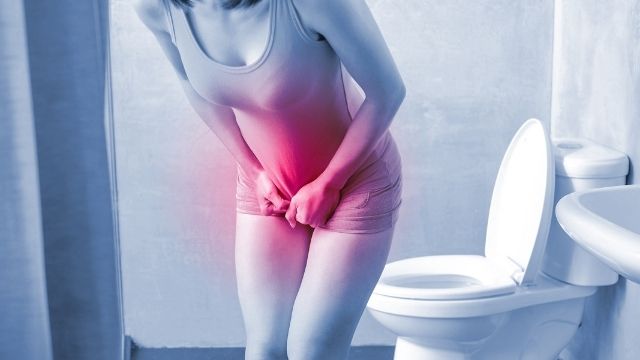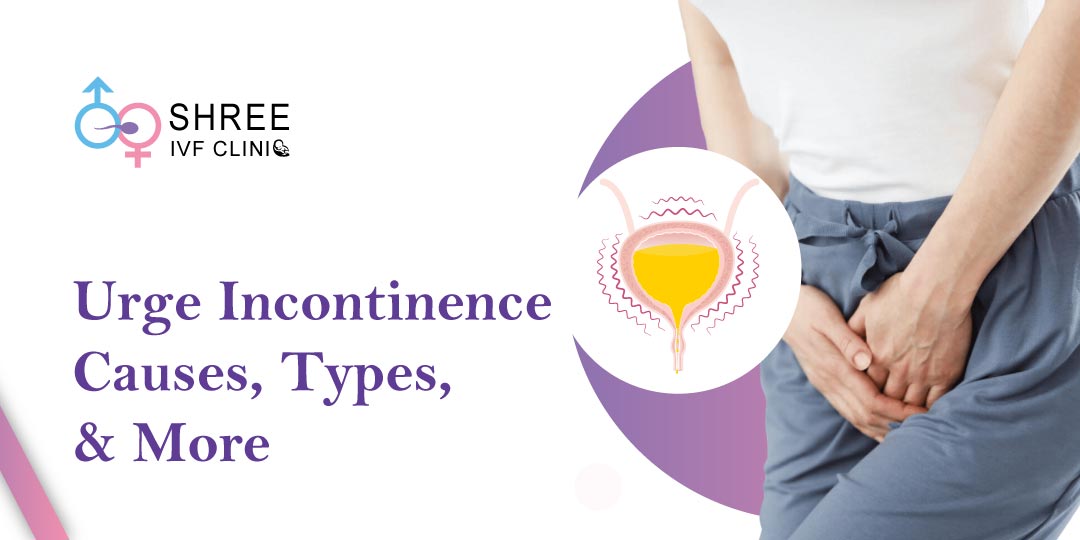Urogynecology and Pelvic Health at Shree IVF Clinic

What is Urogynecology?
The sub-specialty of gynecology is- urogynecology. In many countries, it is also known as Female Pelvic Medicine & Reconstructive Surgery. Clinical problems such as dysfunction of the bladder and pelvic floor are managed by a urogynecologist.
If you are experiencing matters related to pelvic organs, such as uterine prolapse, overactive bladder, bowel incontinence, urinary incontinence, and other frustrating pelvic problems, you may find relief by visiting a urogynecologist.
Everything You Need to Know About Urogynecology
What is| What does | Why do | Symptoms| Conditions|When to see |During appointment | Procedures | Treatment
What is a Urogynecologist?
Doctors who receive special treatment to treat and diagnose women with pelvic floor disorders are known as urogynecologists or urogyns as well. They complete a residency or medical school in urology, gynecology, or obstetrics.
Urogynecologists are specialists who have additional training and experience to treat the conditions that affect the female pelvic organs. These conditions can be along with the connective tissue and muscles that support the female pelvic organs.
Not all urogynecologists complete formal fellowship. It mainly deals with the surgical and non-surgical treatments of problems that are non-cancerous. Some of the common problems treated by urogynecologist are:
- Pelvic organ prolapsed
- Urinary incontinence or leakage
- Overactive bladder
Difference between Urologist and Urogynecologist
- Urologist: Specializes in urinary tract disorders in both men and women.
- Urogynecologist: Focuses on pelvic floor disorders in women, combining expertise in gynecology and urology. They handle surgeries and clinical evaluations, particularly for prolapse, incontinence, and complex post-surgical complications.
What does a Urogynecologist do?
After completing the studies and securing a degree in gynecology, the aspiring candidates undertake a fellowship. It lasts for at least three years. Treatments for incontinence, surgical procedures for restoring and reconstructing the pelvic floor, and other matters that have relation to pelvic organs are performed as well.
Urogynecologists are specialists who treat only women. Various conditions of the pelvic organs along with the surrounding muscles and tissues are getting diagnosis and treatment by a urogynecologist. Prolapse and incontinence of the pelvic organs also get treatment by urogynecologist.
About 1 in 4 women is suffering from pelvic health conditions such as:
- Pelvic organ prolapsed – Loss of the normal support of the vagina causes the dropping of the pelvic organs- pelvic organ prolapse.
- Urinary incontinence – Leakage of urine when you laugh, sneeze, or cough
- Bowel control disorders – These includes fecal incontinence, bowel leakage, and constipation.
Book Your Consultation Today With an Urogynecology Specialist in India – Dr Jay Mehta
Why do women need urogynecologist?
Some women may want to see a urogynecologist because they are gynecologists with special training. They treat bladder control problems and various other conditions that involve the urinary tract and female reproductive system, such as:
- Urine leakage
- Bloody urine
- Sudden and frequent urges to urinate
- Pain in the sides or back
- Burning sensation during urination
Women see a gynecologist after facing these symptoms as well. The above-mentioned symptoms can be a reason for:
- Urinary tract infections
- Fallen bladder
- Bladder control problems
- Urinary stones
- Painful bladder syndrome
- Gynae cancer
What are the symptoms of pelvic floor dysfunction?
Read the following symptoms given below to enhance your knowledge about pelvic floor dysfunction:
- Severe pelvic pain (groin, back, abdomen)
- Pain during menstrual period
- Sudden and frequent urge to urinate
- Pain during sexual intercourse
- Burning sensation during urination
- Vaginal burning
- Constipation
- Urinary incontinence
Can a Man See an Urogynecologist?
While urogynecology primarily addresses women’s pelvic health, male patients are generally referred to urologists who specialize in male urinary and reproductive health.
What Urogynecologist Treat: Common Conditions & Surgical Interventions
- Pelvic Organ Prolapse with Reconstruction: This is a procedure addressing prolapse where pelvic organs drop due to weakened endopelvic fascia. It often involves laparoscopic or robotic surgery, offering a quick recovery with most patients resuming activities within 24-48 hours.
- Sacroscpinous Fixation for Vaginal Prolapse: A surgical solution for advanced vaginal prolapse.
- Incontinence Surgeries: These address both stress and urge urinary incontinence.
- Vaginal Tightening Surgeries: Enhances structural integrity and addresses vaginal laxity.
- Cystoscopy: Diagnostic and therapeutic procedure for bladder-related conditions.
- Fistula Repair Post-Surgery: Treats urinary or colonic fistulas resulting from surgical complications.
- Post-Menopausal Symptoms: Vaginal dryness, atrophy, and infections.
When should you see a urogynecologist?
If you are experiencing the following issues, you should seek a urogynecologist:
-
- Prolapse of pelvic organs (something coming out of the vagina)
- Urinary retention
- Urinary leakage or incontinence
- Vaginal laxity or feelings of incomplete defecation
- Reduced sexual pleasure or vaginal dryness
- Vaginal itching or bladder irritation
- Frequent nighttime urination (nocturia)
- Bleeding while urinating
- Bladder pain or post-surgical complications such as urinary or colonic fistulas
They are experts in treating the female pelvic organs and the pelvic floor, such as:
- Connective tissue
- Muscles
- Ligaments
- Nerves responsible for controlling and supporting the function of the rectum, bladder, uterus, and vagina.
If you’re facing issues with your pelvic health, please don’t hesitate to come to our clinic. Dr. Jay Mehta, one of India’s best urogynecologist doctors and pelvic reconstructive surgeons, is here to help you. He understands what you’re going through and will provide a personalized treatment plan just for you, ensuring you feel better and recover quickly.
What to Expect at Your First Urogynecology Appointment?
During your appointment, you’ll likely undergo an examination while lying on a standard table in the dorsal (lying down) position. Here’s what the process involves:
- Physical Assessment: You may be asked to cough or squeeze your pelvic muscles to evaluate pelvic organ prolapse or urinary leakage.
- Vaginal Examination: The doctor may examine the uterus and surrounding tissues to assess their condition.
- Diagnostic Procedures: A colposcopic examination may be conducted to check for abnormalities in vaginal or cervical tissues. If required, a Pap smear will be performed.
- Ultrasound Evaluation: A basic ultrasound will help determine bladder function by measuring urine retention before and after urination.
Is there any special ultrasound needed for urogynecology?
Absolutely YES. Because our detailed ultrasound using a high-frequency probe allows us to study the defects, in the end, pelvic and its fascia, this is particularly important in cases of a patient having recurrent prolapse.
For women facing pelvic health challenges, a dedicated urogynecologist like Dr. Jay Mehta can make a world of difference. Our clinic, Shree IVF & Endometriosis Clinic Mumbai, is a referral unit for advanced pelvic surgeries, and we’re proud of the positive results our patients report. Their kind words inspire our commitment to excellence. However, be cautious of support groups that may offer misleading advice—choose professional medical guidance for your health needs.
Documents to Bring for Your Urogynecology Consultation
To prepare for your Urogynecology appointment, please gather the following details:
- Urination Records: Note how often you pass urine, especially if you experience frequent or urgent urination. This information helps assess patterns and potential problems.
- List of Medications: Bring a list of your current medications. This is especially important for diabetic patients, as Type 2 diabetes is a leading cause of bladder issues in women.
- Weight Information: Know your current weight, as obesity is a treatable factor associated with bladder problems.
- Delivery History: Provide details regarding any previous vaginal deliveries or trauma, keeping in mind that such instances are rare today due to higher cesarean section rates.
- Investigations and Test Reports: Bring records of any prior medical investigations, particularly a Urodynamic Study (UDS), which helps evaluate bladder function and conditions like detrusor instability and mixed urine incontinence.
- MRI Reports: If you have had an MRI for bowel or defecation issues, make sure to bring those results, especially if you had an MRI Defecogram, which may not be comfortable but holds valuable diagnostic information.
- Surgical History: Discuss any prior surgeries, such as vaginal hysterectomy with posterior and anterior colporrhaphy, noting that results vary greatly with the surgeon’s skill and may influence recurrence rates of vaginal prolapse.
Urogynecology Procedures
There is no reason for you to suffer from a pelvic or a bladder condition silently as well. Urogynecologists can diagnose and treat the disorders through minor lifestyle changes, surgery, or even medication. The urogynecology procedure also includes:
- Burch procedure
- Culdeplasty
- Cystocele and rectocele repair
- Marsupialization or excision of Bartholin’s Gland
- Paravaginal repair
- Posterior repair
- Sacral colpopexy
- Sacrospinous ligament fixation
- Trans-obturator tape (TOT)
- Tension-free vaginal tape
- Colpcleisis
What treatments option urogynecologist offer?
Treatment options usually depend upon the condition of the patient. Doctors take the decision after performing several physical exams also. The following are the treatment options urogynecologist offers:
- Diagnosis and evaluation
- Behavioral therapy
- Surgery
You have to see a urogynecologist as soon as you face the symptoms of it. Do not be shy and face incontinence and prolapse of pelvic organs silently.
What is the Impact Factor of Urogynecology?
- Specialized Expertise: A dedicated urogynecologist’s focus leads to better patient outcomes.
- Referral Unit: Advanced centers handle complex pelvic surgeries with significant success.
- Patient Satisfaction: Long-term management improves quality of life and garners patient trust and gratitude.
- Chronic Condition Management: Urogynecologists provide tailored, ongoing care for chronic pelvic floor conditions

Dr. Jay Mehta
MBBS, DNB—Obstetrics & Gynecology
IVF & Endometriosis Specialist, Laparoscopic Surgeon (Obs & Gyn)
Dr. Jay Mehta is a renowned IVF specialist and fertility-preserving surgeon in Mumbai, India. He is the director of Shree IVF and Endometriosis Clinic, Mumbai. He is a leading laparoscopic gynecologist in India for endometriosis and adenomyosis.
He is a well-known fertility and IVF specialist and also among the few doctors in the country who specialize in embryology and andrology. He operates India’s major cities, including Mumbai, Pune, Chennai, Hyderabad, Bangalore, Ahmedabad, Agra, Delhi etc.
To book an appointment, call: 1800-268-4000 or fill out our contact form
Blogs

Urge Incontinence : Causes, Types & Insights
In this blog, we will delve into the causes, types, and broader aspects of this medical condition.

Is urinary incontinence permanent?
Urinary incontinence, or the inability to control one’s bladder, can be embarrassing. This issue can range in intensity from occasional leaky pee to a sudden and strong need to urinate, causing you to pee before reaching the toilet.
Videos

Urinary Incontinence – Symptoms and Causes
Urge incontinence primarily stems from a weakened internal sphincter, which is essentially a muscular valve that controls the release of urine from the bladder

How to treat Overactive bladder?
Urge incontinence is extremely amenable to treatment when treated correctly. There are a lot of medical management options available in order to treat urge incontinence.

